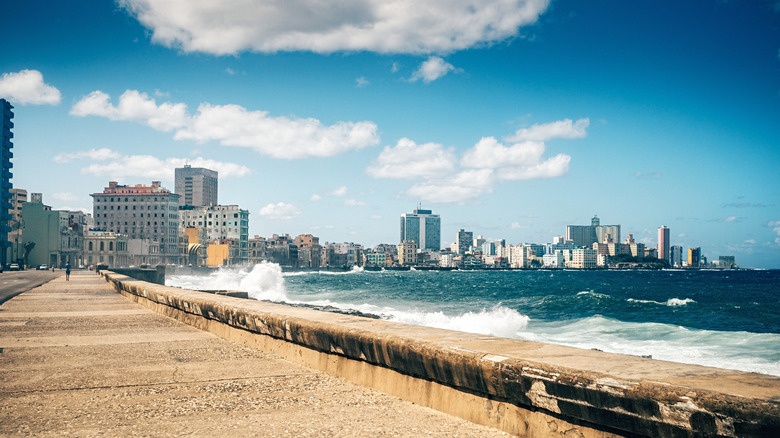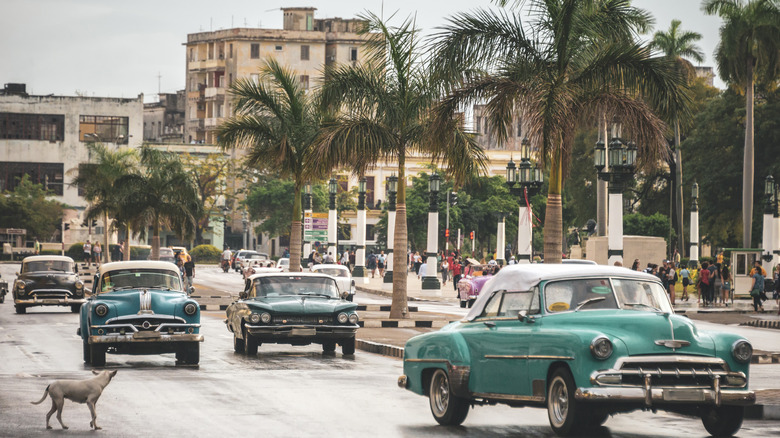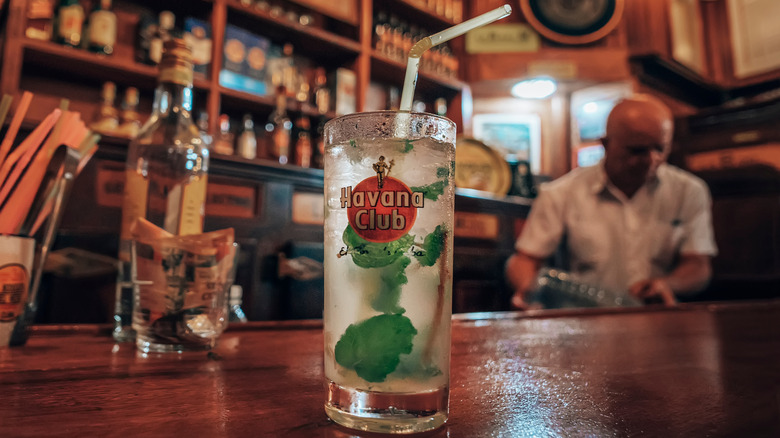To most, Miami conjures images of fun in the sun: beaches blanketed with health-conscious individuals soaking up the rays, a roaring club scene, and tons of Latin flavor (particularly Cuban). However, in spite of being a popular tourist destination, Miami is the rudest city in America. While no one can say for sure, it’s not a stretch to guess this trending lack of respect for people’s personal time and space might relate in some way to the city’s overcrowding, particularly during spring break and summer vacation. So who could blame you for wanting to seek out an alternative for your next sun-soaked vacation? The closest Miami dupe, both spatially and culturally, is Havana, the capital of Cuba, just a 75-minute flight away over the Caribbean Sea.
Havana has lent itself to Miami’s cultural quilt thanks to the Florida city’s emigrated Cuban population, but there are still some things the original does better. Despite having a similar tropical vibe to Miami, Havana has escaped the capitalist machine, meaning it hasn’t been bought out and overpriced. It has nightlife with soul, driven by salsa clubs full of cigar smoke rather than bottle service and celebrity DJs. Streets are full not of Teslas and high-rises, but glamorous vintage cars and historic architecture. Cuba is an island with real lived-in authenticity, and Havana is the place where its cultural vibrance concentrates most. In many ways, it offers a far more immersive and exciting warm-weather escape than Miami. Just note that, if you are a U.S. citizen, as of May 7, 2025, Cuba is on alert due to rising crime and unreliable power, and you’ll have to receive special permission for one of 12 categories of authorized travel.
Explore Havana’s history and street life by day
Little Havana may be Miami’s most unique neighborhood, offering a taste of Caribbean cuisine and culture, but it’s got no dice on the real deal. Havana’s red-hot pulse beats throughout the city — in the cobblestone streets of UNESCO-listed Habana Vieja (Old Havana), dotted with colonial plazas and cultural landmarks like Museo de la Revolución; in Centro Habana, where mint condition Mustangs and T-Birds parade down tree-lined Paseo del Prado; and in Jaimanitas, where the mosaics of José Fuster have transformed city blocks into a rainbow wonderland.
One of the fastest (and most photogenic) ways to see the city is on a tour in a classic American car from the 1950s. Cuba’s embargo on American products following the Cold War limited automobile supply to the island, initially forcing mechanics to inventively restore the products they already had. But today, it’s not just a necessity but a trendy point of pride that Havana’s streets basically look like a classic car show, and visitors are more than welcome to wheel back in time and take part. Ride anywhere you choose; the Malecón esplanade makes for a pastel-colored sunset after swinging by the old Spanish forts in Casablanca.
Both Almacenes San José Artisans’ Market and Fábrica de Arte Cubano are wonders of Cuban art and craft, and it’s simply impermissible for a visitor to leave Cuba without having tasted ropa vieja. The name of this slow-roasted steak in red sauce literally means “old clothes” because its texture is that delicate, and it pairs perfectly with the crunch of tostones (fried plantains). When you’re finally ready for beach time, turn to Playas del Este. This 5-mile stretch of gold-sand beaches has the turquoise waters of South Beach but without all the crowds.



